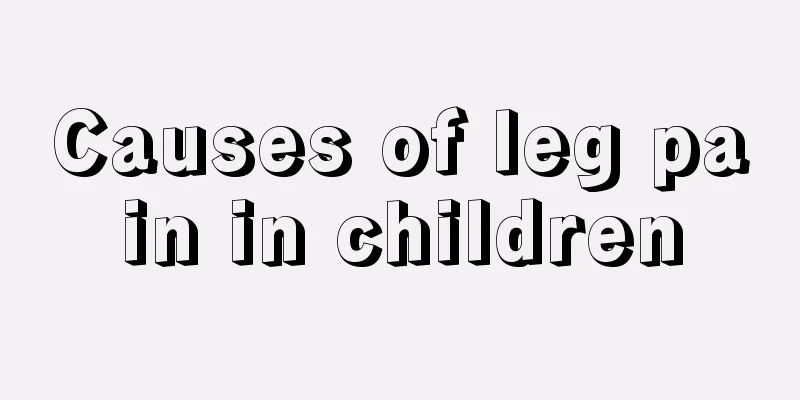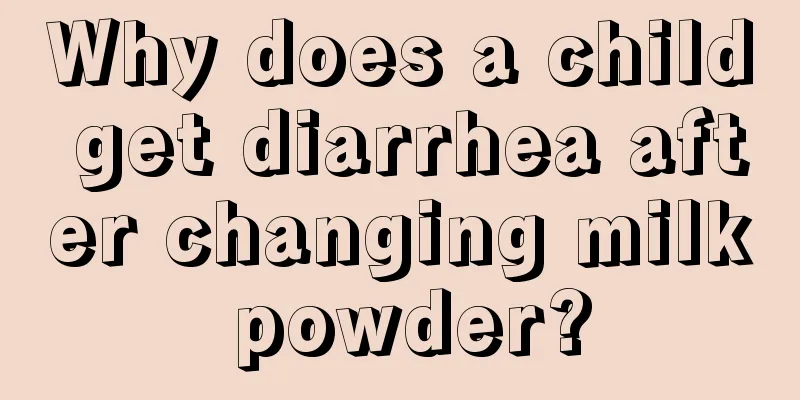Causes of leg pain in children

|
Many parents are very concerned about their children's growth and development, and they are also particularly worried about some symptoms that appear in their children. For example, many parents suddenly hear their children say that their calf hurts, and some children cannot sleep at night because of the pain. So what exactly causes such symptoms? Leg pain in preschool children is mostly due to growing pains For many parents, the term "growing pains" is not unfamiliar. Zheng Qiujian, director of the orthopedics department of Guangdong Provincial People's Hospital, said that growing pains mostly occur in preschool children. The cause of the disease is that the child's bones grow too fast, which is not coordinated with the growth and development of local muscles and tendons, resulting in muscle pulling pain. So the painful area of growing pains is not actually the bones, but the muscles. In theory, growing pains usually occur near the knee joint and sometimes manifest as pain in the front of the calf. Zheng Qiujian introduced that the area of growing pains usually has no history of trauma and the activities are normal. There will be pain when pressing the local area, but there will be no other symptoms such as local redness and swelling. Growing pains will not last long and may disappear in two or three days, but the child may cry out in pain again after a few days. The pain location of growing pains is not fixed. The pain on one side of the leg may disappear, but the pain on the other side may appear after a few days. Parents have found that their children often complain of leg pain at night, sometimes before going to bed, and sometimes when they wake up from their sleep with pain. Do growing pains only occur at night? Director Zheng Qiujian explained that growing pains can actually occur during the day, but children often don’t notice them because they are busy and their attention is distracted. For young children, they may not be able to tell the specific location of the pain, and they often cry, become irritable, and swing their legs constantly. Parents should pay more attention to these body language expressions of their children. In the above article, we learned that children’s calf pain is actually a physiological phenomenon that occurs during the child’s growth process. We can usually choose massage to treat and relieve the child’s pain, and encourage the child to run and exercise more. |
<<: The main reason for baby's bone cracking
>>: Why does a four-month-old baby not like to eat milk?
Recommend
What are the symptoms of pelvic effusion in children?
For many adult women, pelvic effusion is a famili...
How to check baby's hernia
How to check for hernia in babies? Once a baby su...
What should I do if my child feels sleepy when doing homework?
Parents often find a headache problem, that is, c...
Why don't babies choke on water when swimming?
Babies do not choke on water when swimming becaus...
What to do if your child's skin gets tanned
It is a normal physiological phenomenon for child...
Why do children cough at night?
My child has been coughing at night recently. He ...
What to do if your child has depression tendencies
We all know that in the process of children's...
Treatment for children crying at night
Children's crying at night often makes us par...
Symptoms of precocious puberty in girls
Nowadays, children are exposed to various electro...
Baby coughing red eyes
In the process of caring for babies, it is inevit...
First aid measures for children with fever in the middle of the night
Children have weaker immunity, and a minor illnes...
What should we do if primary school students have poor memory?
We usually use a child's memory to judge whet...
One-year-old baby suddenly cried in the middle of the night
If a one-year-old baby suddenly starts crying in ...
What should I do if my baby has a recurring fever?
Some babies have problems with their bodies, so t...
Why does my baby itch when sleeping at night?
The baby's life is an issue that we need to f...









